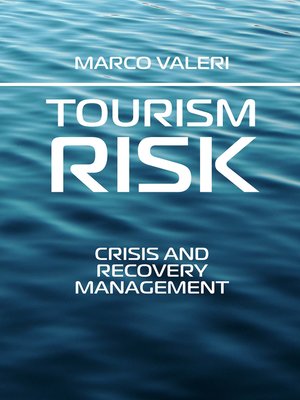
Sign up to save your library
With an OverDrive account, you can save your favorite libraries for at-a-glance information about availability. Find out more about OverDrive accounts.
Find this title in Libby, the library reading app by OverDrive.



Search for a digital library with this title
Title found at these libraries:
| Library Name | Distance |
|---|---|
| Loading... |
The tourism industry is made up of a wide cluster of sectors having specific requirements related to planning for and recovery from tourism destination disasters. Crises faced by tourism destinations have been examined by authors from many angles, including recovery strategies, models for analyzing and developing effective tourism disaster management strategies, economic assessment of policy responses, effects on tourism forecasting and processes for a holistic approach to crises and disaster management in public and private sector organizations.
Tourism Risk: Crisis and Recovery Management is structured in two parts. The first part focuses on "disaster management strategies" and collects chapters analyzing potential obstacles to preventing destruction from (natural) disasters through advocacy, knowledge management, better coordination, capacity building strategies, and better preparedness through advanced emergency response. The second part focuses on recovery management strategies and collects chapters focusing on the tasks which managers face after the immediate consequences of a crisis have been dealt with, addressing the question of how to rebuild the market for a tourism service or destination which has experienced a significant catastrophe, and how to learn from the experience to plan for future crisis response strategies.
Tourism Risk: Crisis and Recovery Management is the result of research from varied nationalities and aims to provide a comprehensive collection of new insights for traditional paradigms, as well as exploring more recent developments in research methodology in the context of crisis management in tourism.







